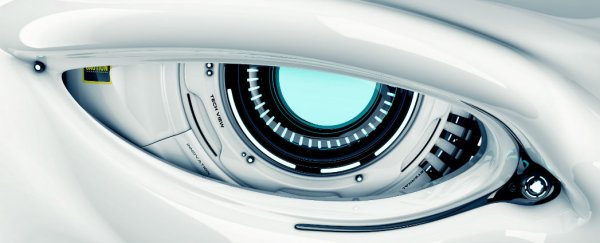Skynet, the fictional AI warfare system depicted in the Terminator movies, has over time morphed into a kind of pop-culture slang: a tongue-in-cheek shorthand for people's misgivings over a tech-dominated, dystopian future.
But little did we know Skynet has been a real entity all along, with a new report indicating that the name is used for an actual technological surveillance program conducted under the watch of the United States' National Security Agency (NSA).
According to an article by The Intercept, Skynet is a very real NSA security program that monitors the location and communication patterns of suspects of interest by harvesting mobile network metadata and bulk call records. The report details how journalist and long-serving Al Jazeera correspondent, Ahmad Muaffaq Zaidan, was targeted by the Skynet system as a suspected "courier" moving information between terrorist agents.
In leaked internal PowerPoint presentations sourced by controversial NSA whistleblower and former CIA contractor, Edward Snowden, the Skynet program is defined as a "collaborative cloud research effort… Skynet applies complex combinations of geospatial, geotemporal, pattern-of-life, and travel analytics to bulk DNR data to identify patterns of suspect activity".
The top-secret documents - many particular details in which have been redacted - describe how the Skynet system analyses the movements and behaviours of mobile phone users to ascertain high-scoring selectors who are considered likely candidates to be terrorist couriers. In one of the slides, Al Jazeera journalist Zaidan is identified by the system as the "highest scoring selector that traveled to Peshawar and Lahore". Underneath his picture, Zaidan is described as a member of Al Qaeda and the Muslim Brotherhood who "works for Al Jazeera".
One of the presentations, "Skynet: Courier Detection via Machine Learning", explains how "we are looking for different people using phones in similar ways… From GSM metadata, we can measure aspects of each selector's pattern-of-life, social network, and travel behaviour".
Zaidan, who through the nature of his reporting work has come into contact with (and interviewed) several senior Taliban and Al Qaeda figures, including Osama bin Laden, has denied membership of Al Qaeda and the Muslim Brotherhood and come out criticising the covert surveillance methods that labelled him as a terrorist.
"For us to be able to inform the world, we have to be able to freely contact relevant figures in the public discourse, speak with people on the ground, and gather critical information. Any hint of government surveillance that hinders this process is a violation of press freedom and harms the public's right to know," he told The Intercept. "To assert that myself, or any journalist, has any affiliation with any group on account of their contact book, phone call logs, or sources is an absurd distortion of the truth and a complete violation of the profession of journalism."
Aside from the practical implications for investigative journalists, the revelations provide yet further evidence of the ways in which stored metadata can be used against unsuspecting individuals.
But on the bright side, hey, at least this Skynet isn't single-mindedly busying itself creating a legion of murderous T-800s hell-bent on wiping us all out, right?
